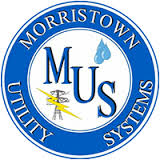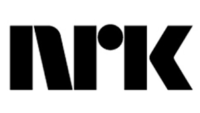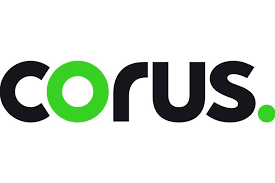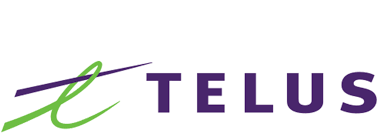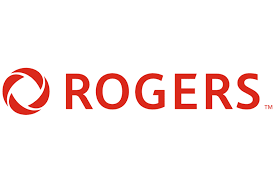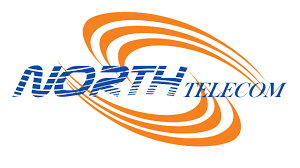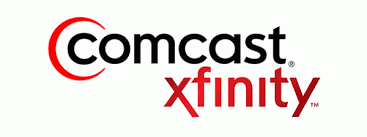Take Control Of Your
OTT Video Service
Quality
Viewers are consuming more video content than ever before. Their high expectations of having content available anytime, anywhere, and on any screen present several operational challenges for Over-The-Top (OTT) video providers.
Quality of Service (QoS) and Quality of Experience (QoE) are key challenges for OTT Services, such as Netflix and Hulu. As OTT streamed content is delivered over the public Internet, it is subject to the same limitations as any open, unmanaged network – slow speeds during peak Internet usage hours and long buffering times. Further, managing different streaming protocols and DRM technologies for media delivery is a critical aspect that OTT service providers must focus on. These challenges and managing other technologies and third-party networks directly contribute to OTT content streams' quality of experience.
- Different streaming protocols and streaming profiles
- Managing various DRM technologies
- Third-party CDN and media delivery technologies
- No control over internet delivery
- Transmission errors -- delay, jitter, packet loss
- Stream availability
- Buffering issues
- Video quality - black, frozen, blockiness, pixelation
Monitoring the quality at different points of your video preparation and delivery chain is important; it's the key to controlling the quality of your OTT video service. This practice is crucial in efficiently and quickly detecting any problems that may arise.
Take me there
Have a questions?
TeleSight OTT Video Service Monitoring
Real-time Multiviewer
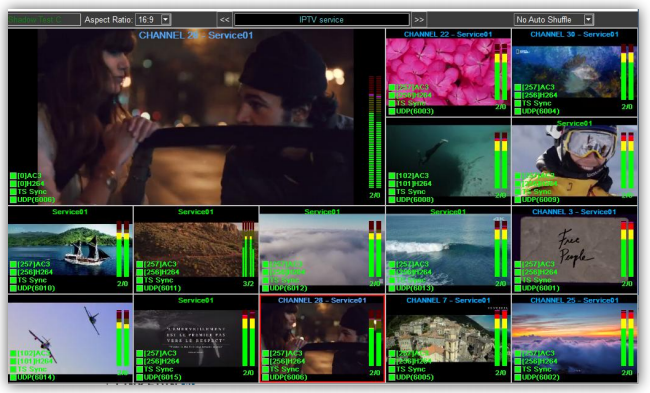
MiraVid couples confidence monitoring with complete testing and analysis of video streams for cable, satellite, telco, IPTV, and over-the-top (OTT) services with full multiviewer capabilities. Its customizable real-time multiviewer display of up to 100 video streams on a single mosaics screen. On-screen video stream statistics and alarms provide you with the overall health of your services at a single glance.
Real-time Alerting
On a typical day Network Operators need to address a range of problems in their control room, while simultaneously monitoring numerous program channels, so considerable time may elapse before a problem is noticed. Real-time alerting notifies the operator of any issues that arise, so that action can be taken to ensure minimal impact on customers. TeleSight’s comprehensive set of reporting capabilities provides information that exposes the origin of the problem and the level of impact (system, video, or audio) for faster and more efficient troubleshooting.
Error Logging & Recording
Alarms and error logging can be configured for a local log, SNMP, Syslog, and Email alerts (upon critical error detection). An external alarm device (buzzer, light) can be integrated to troubleshoot problems.
The system also provides stream recording capabilities to capture and record a video stream upon error automatically or manually. Automatic stream recording enables the automatic capture of stream data before and following an error condition (in system, video or audio layers). Source data captured will be saved from 3 seconds before the error and 1 to 60 seconds after the error happens.
QoE Tests & Alarms
Being alerted of video service and quality issues is critical for Video Service Operators to troubleshoot and fix the problem quickly.
Alarms and alerts are easy to set up based on constraints and thresholds that you defined in the system. Once an alarm is detected, such as a black and frozen video, the alarm message will appear on the Active Alarms dashboard and the video multiviewer screen. This allows for quick identification of any issues.
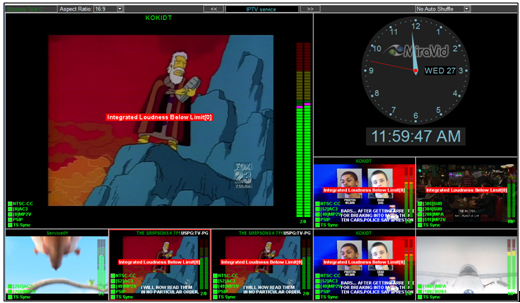
QoS Test & Alarms
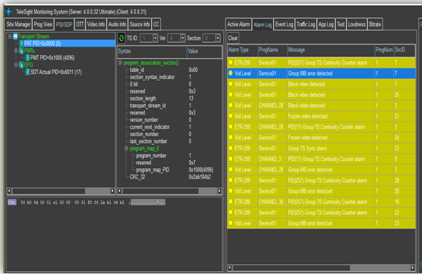
Being alerted of video service and quality issues is critical for Video Service Operators to quickly troubleshoot and fix the problem.
Active Alarms are displayed in real-time. Once an alarm is detected, such as a signal loss and continuity counter errors, the alarm message will appear on the Active Alarms window and the video mosaic (multiviewer) screen. This allows for quick identification of any issues.
Video Compression Analysis
The MiraVid system provides a comprehensive set of system (TR-101-290), video, and audio quality tests, as well as additional measurements and analysis, to help operators to identify and efficiently troubleshoot issues.
Video conformance syntax testing and alarms detect video quality issues, including blockiness, pixelations, and video corruption problems. In addition, PSI table analysis, GOP structure picture graph, quantization graph, and bitrate charts provide the operator with further insight into how the streams are encoded and opportunities where video quality can be improved.
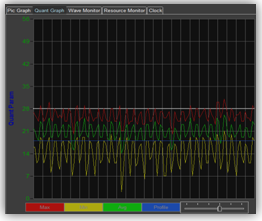
TeleSight allows operators to monitor and analyze their video services with confidence. It offers real-time decode, display, and stream analysis, including TR-101-290, video black and freeze, video codec conformance, and audio level tests. Its multiviewer display is highly configurable with on-screen alarms and notifications.
TeleSight’s advanced level video testing provides in-depth video conformance (syntax level) testing for H.264/AVC and MPEG-2 compressed video at the syntax and macroblock level. Video conformance testing detects blockiness and pixelation issues.
We’d love to show you how TeleSight can help you monitor your video services. Complete the form and someone will contact you to schedule an online demo and answer your questions.
If you are interested in a sales quote, we need more information about your monitoring project.
OUR CUSTOMERS
trust us because their quality of experience matters.







